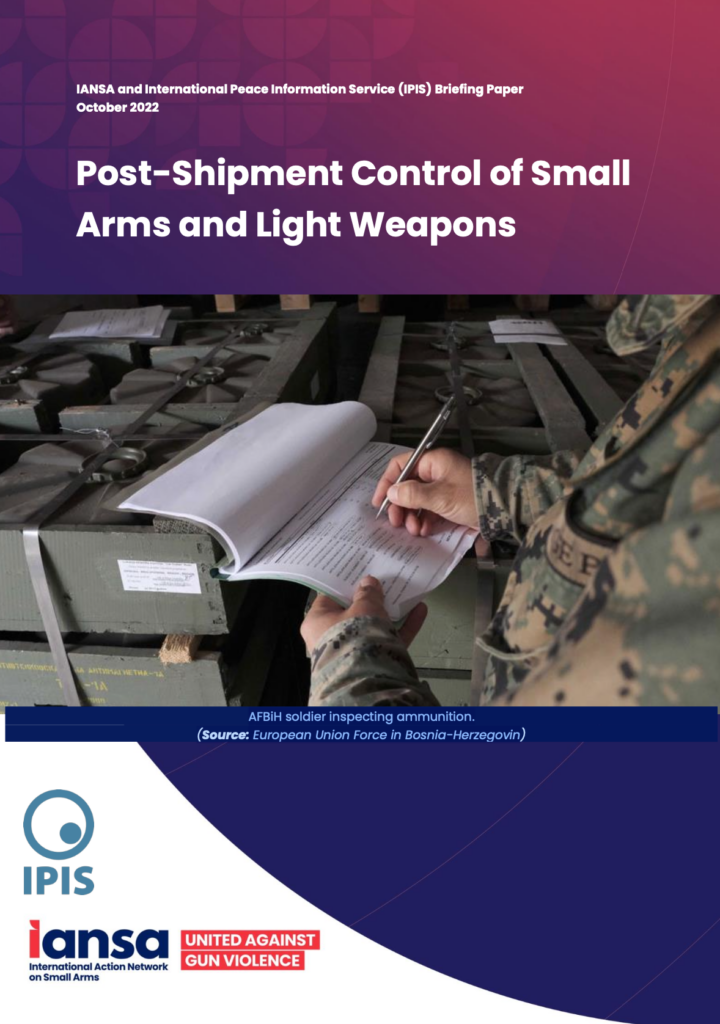The illicit trade of small arms and light weapons (SALW) and their ammunition, parts and components remains a serious international problem in many States. To prevent the illicit trade in conventional weapons and to prevent their diversion to the illicit market, all States have made commitments since 2001 to establish stronger systems that will ensure responsible control of arms transfers. A coherent regulatory system for SALW should include robust export and import risk assessment procedures and licensing systems entailing the verification of end-use(r) certificates and other documents, as well as secure physical security and reporting measures, relating to brokering, transport, storage, and deployment. Post-export activities have come under increasing attention – what governments are now calling “post shipment control.”
This briefing paper outlines ways of preventing post-shipment diversion, highlights relevant international instruments, and defines post shipment measures.
Post-shipment measures taken by exporting States can include the use of (a) delivery verification certificates, (b) on-site post-delivery verification inspections, (c) use of non-re-export clauses in the end-use(r) certificate, and (d) on-site end-use monitoring to ensure respect for an obligation by importing State to not transfer title or possession of goods to any person or entity without the consent of exporting State, so that the arms or other items are used only for their intended purpose.
This paper is a collaboration between IPIS and IANSA (International Action Network on Small Arms)
Photo: AFBiH soldier inspecting ammunition. ©European Union Force in Bosnia-Herzegovin

This publication has been produced with the financial assistance of the Belgian Directorate-General for Development Cooperation and Humanitarian Aid (DGD). The contents of this document can under no circumstances be regarded as reflecting the position of the Belgian Development Cooperation.


